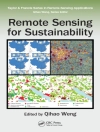Maps and mapping are fundamentally political. Whether they are authoritarian, hegemonic, participatory or critical, they are most often guided by the desire to have control over space, and always involve power relations. This book takes stock of the knowledge acquired and the debates conducted in the field of critical cartography over some thirty years.
The Politics of Mapping includes analyses of recent semiological, social and technological innovations in the production and use of maps and, more generally, geographical information. The chapters are the work of specialists in the field, in the form of a thematic analysis, a theoretical essay, or a reflection on a professional, scientific or militant practice. From mapping issues for modern states to the digital and big data era, from maps produced by Indigenous peoples or migrant-advocacy organizations in Europe, the perspectives are both historical and contemporary.
लेखक के बारे में
Bernard Debarbieux is Professor of Cultural and Political Geography at the University of Geneva, Switzerland. His research focuses on the spatial dimension of social imaginaries, including the role of maps in the configuration of these imaginaries, and associated social collectives.
Irene Hirt is Professor of Human Geography at the University of Geneva, Switzerland. Her research focuses on participatory and decolonial methods, processes of land territorial reappropriation by Indigenous peoples across the Americas and mapping in Indigenous contexts.












